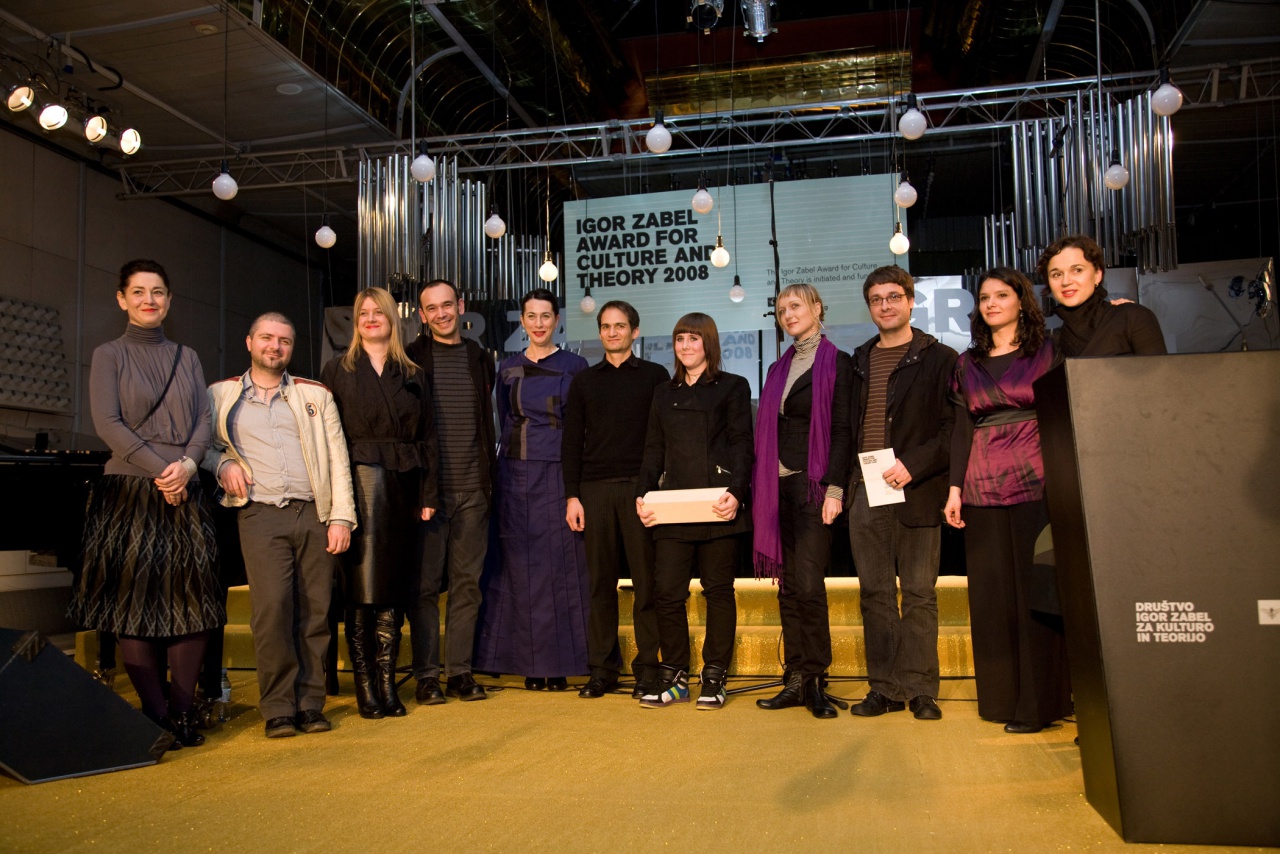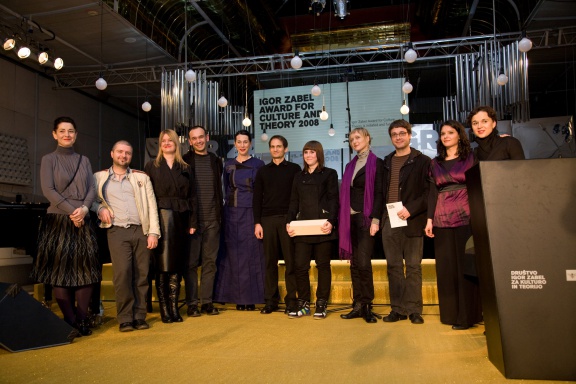Igor Zabel Award for Culture and Theory

Past events
-
to
9 Dec 2010
12 Dec 2010
SpainBarcelonaMuseum of Contemporary of Art (MACBA)Igor Zabel Award for 2010 is bestowed during the Writing Art History Conference
The laureate is selected biennially by a renowned international committee of experts. International curators, theorists, writers, and critics whose work spans the region and who either come from the region or live and/or work there are eligible for the award. In addition to the award of 40,000 EUR, three working grants of 12,000 EUR each are awarded - two by the jury, one by the laureate.
Background
Igor Zabel was a Slovene curator, writer and cultural theorist who, during his entire life, was actively involved in many fields of theory and culture – as a philosopher, author, essayist, modern and contemporary art curator, literary and art critic, translator, and model for new generations of curators and critics of contemporary art. As a curator and writer, he tirelessly called for the profound exploration of those political, social and cultural undercurrents that had the potential to give us a better understanding of the post-communist world of today.
Award winners
The very first award went to the Croatian curatorial collective What, How & for Whom (WHW) (Ivet Ćurlin, Ana Dević, Nataša Ilić, and Sabina Sabolović) that became quickly known internationally due to the success of their first projects: What, How and for Whom, on the occasion of the 153rd anniversary of the Communist Manifesto; Broadcasting, a project dedicated to Nikola Tesla, and START dedicated to young artists from the region. The award was substantiated: "their unique working practice as a curatorial collective has been dedicated to exploring relevant contemporary artistic issues in relation to social issues concerning the world after 1989". In 2009, the WHW collective curated also the 11th Istanbul Biennial.
Grants of the Igor Zabel Award for Culture and Theory in 2008 were bestowed to the linguist Fouad Asfour, living and working in Vienna (Austria) and Johannesburg (South Africa) as a freelance writer, editor, programme coordinator, and linguistic advisor; further to the writer Erden Kosova, publishing and editing in two Istanbul-based contemporary art magazines art-ist and Resmi Gorus and a member of a post-anarchist collective which runs the magazine project Siyahi; and to the Prelom Kolektiv from Belgrade, established in 2001 as a project of the Belgrade Center for Contemporary Art, and from the very outset has become a space for critical query of the political constellations between art, film, and social theory in the contemporary post-Yugoslav context.
In 2010, the award was bestowed to Piotr Piotrowski, art historian and director of the National Museum in Warsaw. Three working grants were appointed by the jury and went to the Croatian-British writers and curators Maja and Reuben Fowkes, to the Romanian curator Raluca Voinea, and to the interdisciplinary Peace Institute - Institute for Contemporary Social and Political Studies from Ljubljana, Slovenia, for its "extremely important contribution to critical research of social, cultural and political transitional processes". The fourth grant, selected by Piotr Piotrowski, went to the Bratislava-based art historian Daniel Grúň. The award ceremony took place at MACBA, Barcelona.
The 2012, the Igor Zabel Award for Culture and Theory was bestowed to Suzana Milevska, art historian, curator and theorist of visual art and culture from Skopje, Macedonia. Three grants were given to the Berlin-based Slavic studies scholar Sabine Hänsgen, the art historian Klara Kemp-Welch from London and the European Roma Cultural Foundation based in Budapest. The award ceremony in November 2012 at the Zachęta National Gallery of Art in Warsaw was accompanied by a conference and presentation of the book Igor Zabel: Contemporary Art Theory.
In 2016, the award went to Russian curator and theoretician Viktor Misiano. He used to curate the Pushkin State Museum of Fine Arts (1980–1990) and acted as a director of Center for Contemporary Art (CAC) (1992–1997). In 1993, he founded the Moscow Art Magazine and continued to work as its editor-in-chief. Together with Igor Zabel he founded Manifesta Journal: Journal of Contemporary Curatorship. He has a long history of collaborative projects with Moderna galerija (MG). He earned his award by his curatorial achievements, his writings and his editorial work, all of which make him one of the most renowned art professionals in Eastern Europe in the last three decades.
See also
External links
- The Igor Zabel Award for Culture and Theory web page
- Igor Zabel Award 2008 on the e-flux
- Igor Zabel Award 2008 on the zukunftwissen (in German)
- Music for Igor Zabel Award 2008

